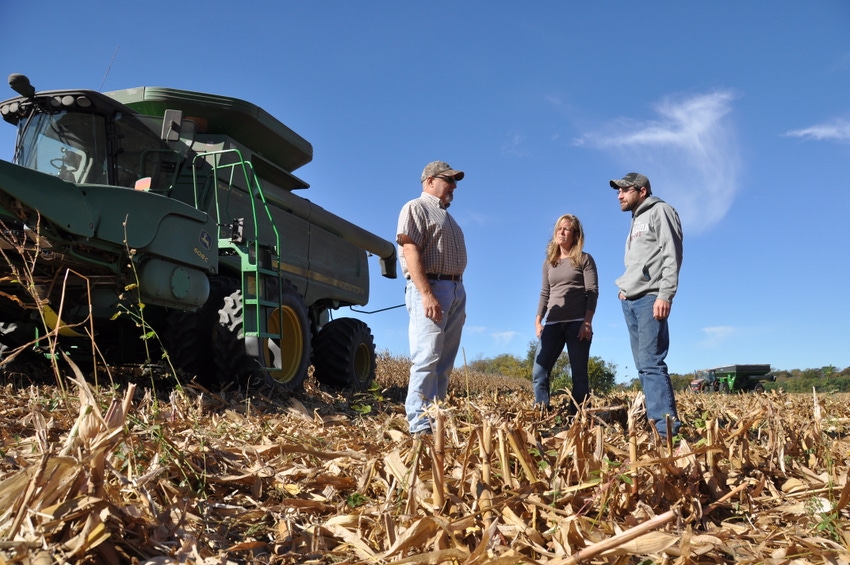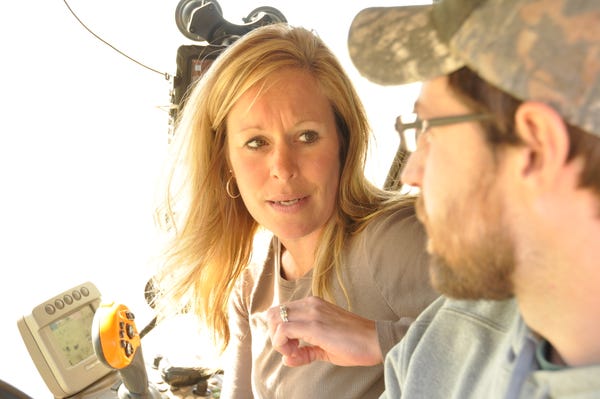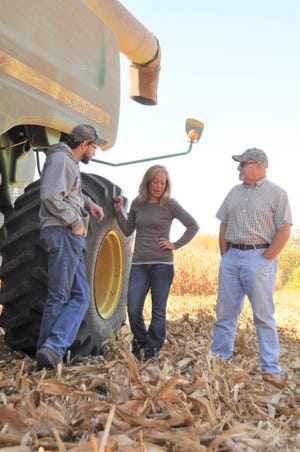
On January 12, 2012, Greg Chatterton kissed his wife goodbye in the still dark morning hours and climbed in his truck. As snow swirled, he left Ellisville, heading off to meet farmer customers and drive to Precision Planting’s winter meeting.
Within the hour, phone calls began crisscrossing cellular waves. Greg never arrived at their meeting place.
An accident was reported. Sirens flashed. At 56, Greg was dead; the only fatality in a single-car accident on a snowy country highway.
“The suddenness. It was just a tragedy,” says his wife, Charlotte, speaking slowly and shaking her head in wonder, even now.
Loss isn’t uncommon in agriculture, where stories abound of fathers dying unexpectedly and sons and daughters taking over the farm unexpectedly – or at the least, sooner than expected. Of widows coping and pulling the farm together.
Yet, what is it that makes it work? What has to happen to label this kind of succession – sudden and unwanted – a successful one?
Unplanned professions
For the Chatterton family, even their original farming heritage wasn’t part of anyone’s plan. Greg and Brett’s father, Sam, was studying engineering at Bradley University when his father was killed.
“My dad never intended to farm,” explains Brett, Greg’s younger brother and farming partner. “He wanted to build bridges. Then his dad was killed by a train, and my dad came home to run the farm.”
By the late ‘80s, Greg and Brett were farming in partnership. Their business included hogs and cattle. By the late ‘90s, they sold the cattle and bought trucks. By 2005, they had sold most of the hogs and started a Precision Planting dealership.
At the time of Greg’s death in 2012, Greg and wife Charlotte, and Brett and wife Deanna were 50/50 partners in three businesses. Farming, trucking and Precision Planting were organized as individual LLCs. Brett’s son, Jason, worked with them part-time, and ran a business of his own. Greg’s daughter, Erin Featherlin, helped run equipment seasonally, and stayed busy with four small children at home.
For both Brett and Greg, the goal of the farm was the family and relationship.
“Some people see farming as their identity. Farming is not our identity. Our identity is in Christ and in our family,” Brett says.
Those relationships helped smooth the decision making after Greg died. “Uncle Brett never asked whether we wanted to farm, because he knew where my heart was and he knew Jason’s plan,” Erin recalls. “He sat down with us within a week to talk about what we’d do.”
A solid plan helped, too. For almost their entire partnership, Brett and Greg carried life insurance on each other, so each could buy the other out if something happened to one of them. “Our heritage was already in place, and the plan took care of the business,” Brett says.

“The plan was something we did right,” Charlotte says. “It was so black and white as to what needed to happen. The buyout was in place. There was no questioning it. I didn’t have to make a decision.” Charlotte retained ownership of their land, and Brett and Deanna were able to buy equipment and the businesses, while retaining their own land.
Greg and Brett’s father was a planner, too. He had a trust plan in place for his five children, communicated it with them frequently and it went very smoothly. “He kept it simple. He just wouldn’t tolerate any of us not getting along,” Brett explains.
Picking up the pieces
Today, Brett manages operations. Jason works full time for Chatterton Family Farms; he manages the farm and is meticulous about details and agronomic decisions. Erin divides her time between the three businesses, runs equipment and is gearing up to lead their Precision Planting business.
“There’s no way we could be doing all this today without Erin and Jason, and there would’ve been a lot more changes in the business without them,” Deanna says.
Erin also helps manage bookwork, a chore that could’ve been a nightmare in the weeks following Greg’s death. For years, they’d worked with FBFM, then stayed with their local field person, Sue Sharon, after she left FBFM. In the wake of swirling emotions, Sue was able to be matter-of-fact: taxes needed to be filed, a particular document had to be found, a deadline was set.
“She was able to be a voice of reason,” Deanna recalls. “She could cross the t’s and dot the i’s for us.”
People helped, Jason adds. “Surround yourself with good people. Grandpa did that, Uncle Greg did that and Dad does that. That made getting through easier because all these people knew our operation.”

And while the Chattertons made good business decisions that set them up for success in the midst of tragedy, they all point to their relationships and heritage as the real source of strength.
“We lost our patriarch,” Brett says. “There wasn’t much that happened on the farm that didn’t go through Greg, and we all went to him to talk.”
And in the end, it was Greg who modeled relationship, too.
“Having those relationships with each other made us able to carry the farm on,” Brett says. ��“Greg was very influential. It’s a success story because of our faith and our family.”
For more:
Chatterton Family: A sudden succession
Chatterton Family: A corn field conversation
About the Author(s)
You May Also Like






